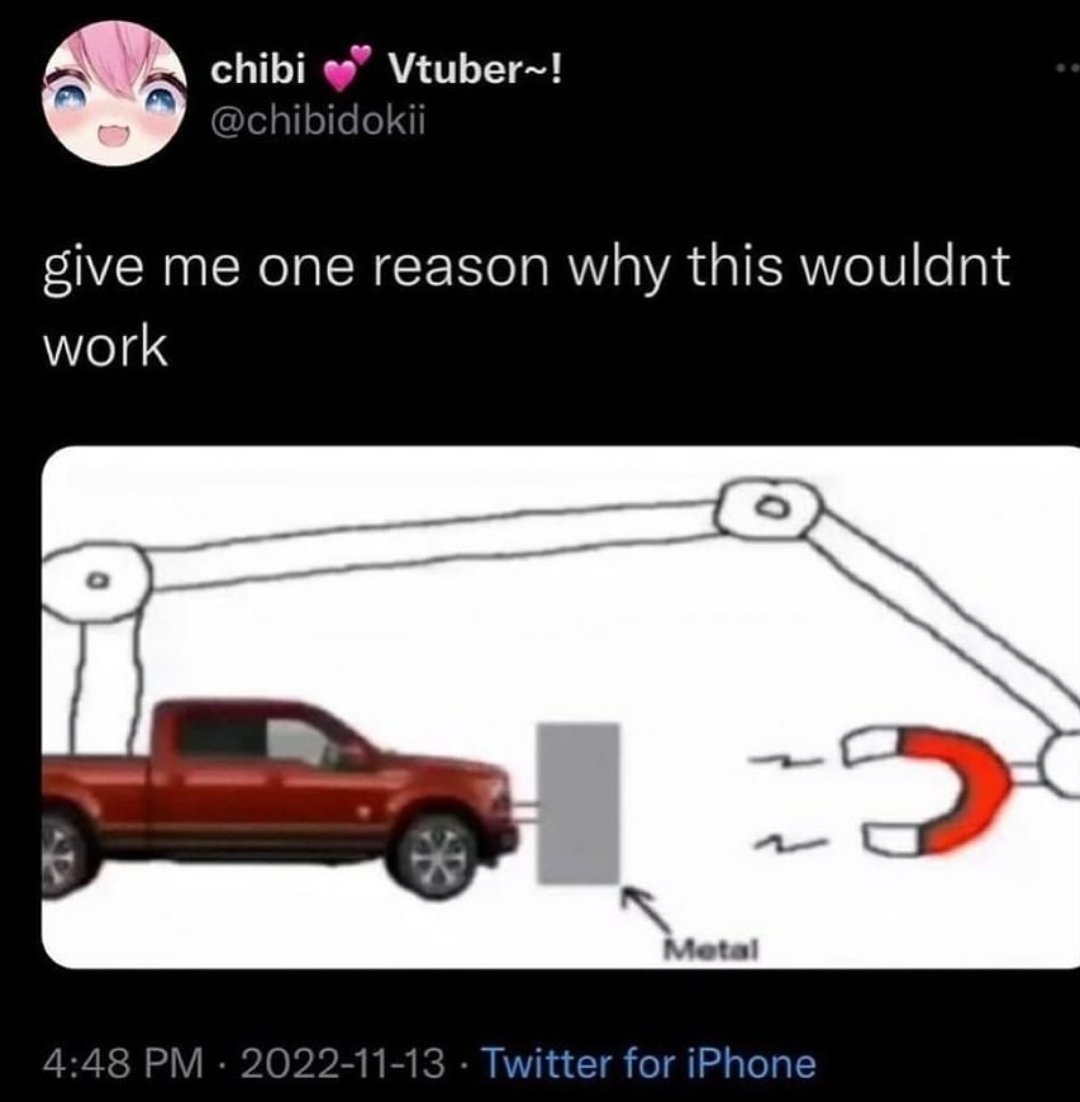this post was submitted on 11 Dec 2023
288 points (100.0% liked)
196
17478 readers
966 users here now
Be sure to follow the rule before you head out.
Rule: You must post before you leave.
Other rules
Behavior rules:
- No bigotry (transphobia, racism, etc…)
- No genocide denial
- No support for authoritarian behaviour (incl. Tankies)
- No namecalling
- Accounts from lemmygrad.ml, threads.net, or hexbear.net are held to higher standards
- Other things seen as cleary bad
Posting rules:
- No AI generated content (DALL-E etc…)
- No advertisements
- No gore / violence
- Mutual aid posts are not allowed
NSFW: NSFW content is permitted but it must be tagged and have content warnings. Anything that doesn't adhere to this will be removed. Content warnings should be added like: [penis], [explicit description of sex]. Non-sexualized breasts of any gender are not considered inappropriate and therefore do not need to be blurred/tagged.
If you have any questions, feel free to contact us on our matrix channel or email.
Other 196's:
founded 2 years ago
MODERATORS
you are viewing a single comment's thread
view the rest of the comments
view the rest of the comments

Newton's third law. Every action has an equal and opposite reaction.
Basically what that means is if the magnet is exerting some amount of force on the truck to pull it towards it, the truck is exerting the exact same amount of force on the magnet in the opposite direction to pull the magnet closer to the truck. This is why when you let go of two magnets they fly towards each other instead of one staying still (unless you hold it still) and the other flying towards it.
If the arm in the picture could bend, the magnet would just stick to the front bumper. If it couldn't move, the magnet would pull on the plate, but that would be cancelled out by the plate pulling on the magnet. They're trying to attract each other, but neither of them can move, so it just stays still.
Now, if the magnet was attached to a different truck, and that started moving, it would pull the truck along just fine. If the second truck was in neutral, it'd roll backwards and the two trucks would meet in the middle. But if you wanted them both to go, you'd have to turn on the engine in the second truck, and you've effectively just invented the world's least reliable tow hook. You can't cause a car to accelerate without some outside force (the second truck's engine) pulling it along.
Newton's third law also applies to gravity. When the Earth's gravitational pull makes something fall to the ground, that something actually exerts the same amount of force pulling the Earth towards it. The earth is several orders of magnitude heavier, though, so it doesn't move very much. Gravity from the moon pulling on water in the ocean does create the tides, though.
What if the magnet was of similar mass to the truck? Assuming it could be made to balance, maybe this actually might work to move the truck such that it meets the magnet in the middle. Then the arm could slide the magnet upwards to detach, reposition it, and repeat. Of course, there are much better ways to make a truck move, but maybe it could work?
This would work, but this is the point where you'd need to involve an external energy source. If you move the truck-magnet-arm system such that the whole system reaches a steady state and the truck has "moved" (relative to an outside observer), to continue any motion, you need to disturb the steady state to reposition the arm and create a new resting point. Doing so would require energy. From a battery, or an engine, or whatever, but you need energy from an external source. And so we're right back to where we started: instead of all this jazz, why not just spend energy to spin the wheels instead?
Yup 👍
That could work, yes. You would have to unstick the magnet from the bumper every time -- or alternately just leave it attached and use it as a tow hook -- but it would work
Because the mass is shared. You could get it to move the truck by moving a giant magnet forward but so long as it’s attached to the truck you’re only ever getting out the movement you put in to the magnet.
Agreed. It could work but it's not a perpetual motion machine and would require energy input to make it work.